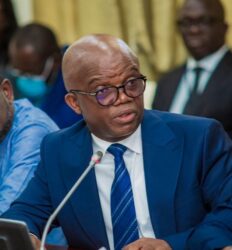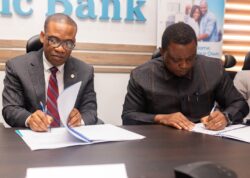The majority of Ghana’s estimated 28million people still struggle to get a decent place to lay their head after a hard day’s work.
A growing housing deficit, lack of enforcement of the Rent Control Act that stipulates landlords cannot demand more than three and six months of rent advance for residential and commercial properties respectively, and the non-regulation of land sales has meant the majority of Ghanaians cannot rent a decent place to live or buy expensive land for development in major towns and cities.
A 2017 research by real estate firm meQasa reveals that the average price for renting a one-bedroom house in Accra for 2017 was GHȼ1,266; two-bedroom, GHȼ2,710; three-bedroom, GHȼ6,939; and GHȼ15,261 for a four-bedroom house.
These prices are on the high side, and the demand for a two-year rent advance by landlords has pushed millions out of the tenant and home-ownership bracket.
Soaring land prices
The average cost of land in Accra remains very high. A plot of land measuring 100 X 80 feet in prime areas now sells for between GHȼ130,000-GHȼ1million.
A plot of land at Cantonments now sells for GHȼ1.08million; East Legon, GHȼ1million; Spintex, GHȼ708,000; and East Legon Hill, GHȼ132,000.
Plots of land at the fringes of the city now sell for between GHȼ12,000 and GHȼ55,000. For instance, a plot of land at Oyarifa is now selling for GHȼ55,000; Pokuase, GHȼ27,000; and Dodowa, GHȼ12,000.
These prices feed into the overall cost of constructing a decent accommodation in the country, making it impossible for the majority of hard-working citizens whose salaries are under GHȼ3,000 per month to qualify for a mortgage to buy a home.
Home prices for 2017, following the increasing pattern in land sales, remain elevated. meQasa data show that in Accra a one-bedroom house now sells averagely for GHȼ450,000; two-bedroom, GHȼ358,000; three-bedroom, GHȼ743,000; and a four-bedroom house is sold for GHȼ2.3million.
A deepening crisis
With a majority of the country’s population – especially the youth – migrating to major towns and cities in search of non-existent jobs, the number of people without a place to lay their heads in Accra, Kumasi, and Takoradi has increased rapidly.
Various sources estimate that Ghana’s population could reach 32.2million in 2020, with about 57 percent living in urban communities. This will only compound an existing situation – the remedy for which has eluded successive governments for decades.
Currently, the housing deficit is estimated at 1.7 million units – a figure that has been thrown into doubt by experts who contend that it’s probably more – with an annual growth rate of 70,000 housing units.
The Ghana Real Estate Developers Association (GREDA) also estimates that about 50% of Ghanaians live in sub-standard housing and various unsuitable structures.
At the Mallam Atta Market, a suburb of Accra, many youth who have migrated from the northern parts of the country to the capital to engage in carrying the loads of shoppers to their cars for money – otherwise known as ‘Kayayie’ – sleep in the open and under market stalls after dark.
Their plight is further compounded in the rainy-season when there’s no place to hide from the heavy April-July rains.
The situation is no different at Tema Station, a bus terminal that has now become home to hundreds of homeless people; and Madina, Ashiaman and other places.
“Affordable” housing?
Various “affordable” housing projects started are yet to be completed. The initial prices for these housing units announced to the 6th Parliament was rejected by the then-Speaker, Edward Doe Adjaho, who said the houses were anything but affordable.
Over the years, governments have not adequately addressed the issue of funding for the real estate sector. Developers have had to borrow at commercial rates from banks, as much as 40 percent in some cases, to undertake various housing projects.
Taxes on imported raw materials and the cost of registering various housing projects with the respective Metropolitan, Municipal and District Assemblies have conspired to restrict the efforts of private housing developers.
In view of this, real estate developers have called on government to set up a special fund in the likeness of the Export Trade, Agricultural and Industrial Development Fund (EDAIF) to address the country’s housing deficit.










